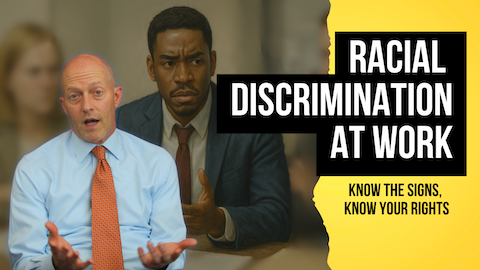Scenario 1
 I suffer from ADHD and depression. Both worsened for a period of months and, as a result, I missed some important deadlines. Given my previous high performance, it should have been clear to everyone that I was experiencing health problems. One of my coworkers even asked me whether I had ever thought about taking Ritalin. I recently was denied a promotion. My boss told me it was because I missed the deadlines. Do I have a claim under the ADA?
I suffer from ADHD and depression. Both worsened for a period of months and, as a result, I missed some important deadlines. Given my previous high performance, it should have been clear to everyone that I was experiencing health problems. One of my coworkers even asked me whether I had ever thought about taking Ritalin. I recently was denied a promotion. My boss told me it was because I missed the deadlines. Do I have a claim under the ADA?
Probably not. Unlike the FMLA, which requires an employer to affirmatively apply the law to you where you qualify for protection (except in limited circumstances), an employer is actually prohibited from assuming that you suffer from a disability. Here, there is no indication that your employer knew of your disability, and both ADHD and depression qualify as a disability under the ADA. Even if your employer were on notice, you did not request an accommodation, and under the ADA, your employer is under no obligation to offer you one absent a request. So, even though you could have been entitled to an accommodation that might have allowed you to meet the deadlines—for instance, time off to see a doctor or a quiet office space—your employer is not liable because you chose not to make the request.
Note that it would be different if there were evidence that your employer denied you the promotion because of your disability. Let’s say that your performance had never suffered and your boss had said, “We just can’t promote you because of your depression.” This would be a violation of the ADA, even though you never requested an accommodation.
Scenario 2
I suffered a seizure last year as the result of my epilepsy. At my doctor’s request, I asked my company to put different lighting in my office. I gave my boss a letter from my doctor explaining the reason why. My company refused outright. I later suffered another seizure at work, injured myself, and had to be hospitalized. I was out for a week under FMLA leave. When I came back, my boss told me that the company had reassigned me to a different position with lower pay. Someone else took my job. Did my employer violate the ADA and the FMLA?
Yes, and yes. Epilepsy is covered under the ADA, and a change in lighting is almost certainly a reasonable accommodation. Your employer violated the law by refusing to even entertain your request. Your employer also violated the FMLA because that law requires that your employer reinstate you to the same or equivalent position, if one is available. Your job was still open, and you were entitled to it.
But here’s the thing. You can bring an action against your employer for the FMLA violation but not the ADA violation. You have at least two years to sue for a violation of the FMLA. You can file a complaint with the US Department of Labor, but this is not required. You can go straight to court. In contrast, you have anywhere from 180 to three hundred days to file a charge with the EEOC for an ADA violation. The ADA requires that you file a charge with the EEOC and let it attempt to investigate your allegations before you sue in court. Because you didn’t file with the EEOC, you cannot now protect your rights under the ADA, even though your company clearly violated the ADA.
Okay, so I can sue for only the FMLA violation. Does this really matter?
It might, at least in terms of what you can recover. Under the ADA, you can recover for emotional distress and for punitive damages. How much those damages would be is hard to say. I’m guessing that the denial of the lighting request was something of a figurative slap in the face. You could win emotional distress damages for that, though likely not a significant amount, unless the denial resulted in severe depression and you have a doctor to testify about that. But it doesn’t sound like it. Punitive damages to punish the company could also be available to you if you were to win at trial. It sounds like this was a blatant violation. Depending on how the courts are where you live, you could receive punitive damages. But, again, these would not be large amounts. First, no jury is likely to slap a company with sixfigure damages for this kind of violation. Yes, it’s bad, but it’s not terrible in the grand scheme of things. Second, courts have held that punitive damages must be proportional to underlying damages. Here, damages for the emotional distress would be low, so that would limit the amount of punitive damages available to you. Under the ADA, you could have also gotten back pay: here, it’s the difference between what you would make if you had kept your old job minus what you actually made. That’s not such a big deal, because you can get those damages under the FMLA.
Under the FMLA, you can still receive the salary that you lost as the result of your employer’s actions, and that likely is the biggest source of damages for you. The FMLA does not allow you to recover emotional distress or punitive damages. However, you can recover liquidated damages, which is not available under the ADA. Liquidated damages are usually double the underlying damages. So, if you had $30,000 in lost back wages, you could recover $60,000 total if the court awarded liquidated damages. You can receive these if you can show that your employer acted willfully. It certainly sounds like it from these facts.





